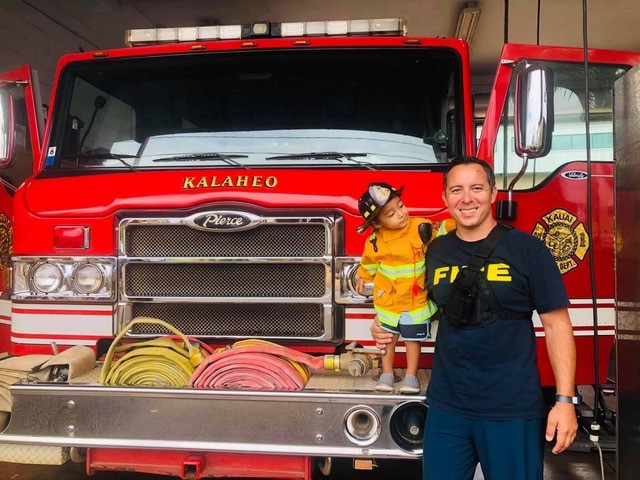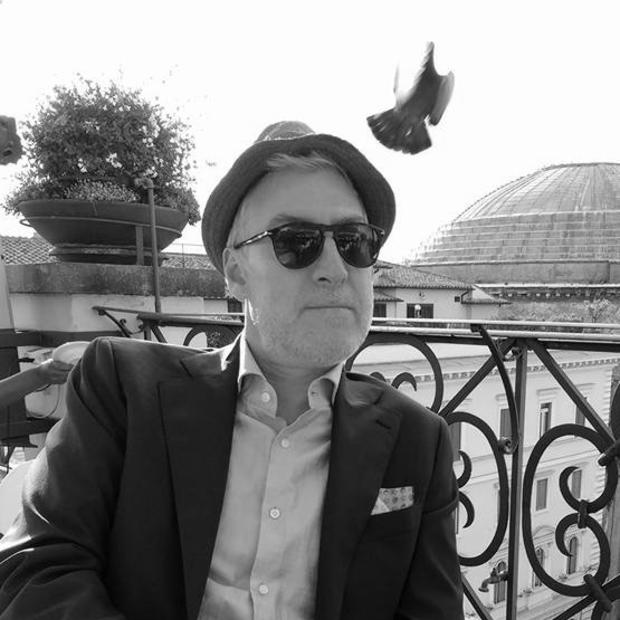While I sat with my craving, friends of mine from high school invaded Kuwait, a place that felt as distant to me as Homer’s epic. Had circumstances been different, I might’ve been with them. As a boy, I loved playing war. In third grade, I wrote an essay celebrating relatives who fought in every armed conflict from the Revolution to Vietnam. They served, I wrote, to protect my “freedom to be me.” For me, going to college felt like a privilege purchased by them. As I registered for my first classes, my friends who served in the first Gulf War went to boot camp. By the time they returned from the war, we’d lost touch the way people did in the days before social media. Now we’re Facebook friends, and I see them post pictures of themselves in desert camouflage along with jokes about uniforms that no longer fit. They visit Facebook the way World War II veterans visited the VFW. In social media, they find community.
I found community in college, so it feels right to me that I became a teacher. I believe in a higher education where students freely exchange thoughts and opinions. I’ve taught at universities and community colleges. I’ve taught in a juvenile detention facility and a study abroad program in Italy. But no other classroom has shown me the kind of community I encountered when I began teaching classical literature to combat veterans in the Clemente Course in the Humanities, a free night class at Antioch University Seattle.
Maybe combat veterans build a positive classroom community because they share an implicit bond. They’ve seen and done things that most of us haven’t, and as traumatic as many of those things are, they also breed a familiarity that engenders respect. Veterans are a family. Like most families, they don’t agree on everything. They don’t share the same politics or opinions. They argue about race, gender, military sexual trauma, whether President-elect Joe Biden will do a better job fighting the coronavirus than President Donald Trump. But more than most students, they impress me with their ability to speak openly and honestly without fear.
Drafted in 1969, Paul Hardin hoped the Army would allow him to follow a path that fulfilled his duty to country but kept him out of the war in Vietnam. “My government told me it was a necessary conflict,” he says, “my heart said it was not.” After training in military intelligence and French language school, he awaited orders at his duty station in Virginia. When his orders finally came, he says, “I was alone in my room, which faced Arlington National Cemetery.” He anxiously opened the envelope. When he saw that he’d be going to the Republic of South Vietnam, he looked at the rows of graves outside his window. “I wondered if that, too, was my destiny."
Even if he survived, Hardin realized, he would have to kill for reasons he found suspect — because his government had involved itself in “an unjust, immoral political conflict” that it couldn’t retreat from without “losing face.” He felt morally “paralyzed” by his love of country. Once in Vietnam, he did what his government sent him to do. The boot camp mantras of “let the red of the dead flow” and “kill, kill, kill” echoed in his head. But he couldn’t exorcise the feeling that he was doing wrong. He grew tired of death. “The more I witnessed, the more my stomach churned,” he says. “I realized what a tragic and fatal error I made when I chose country over my moral core.” When he started listening to his own conscience, his “enemy body count” began to drop prodigiously. The Army declined to offer him “the $5,000 re-up incentive to stay for yet another tour and continue to kill.”
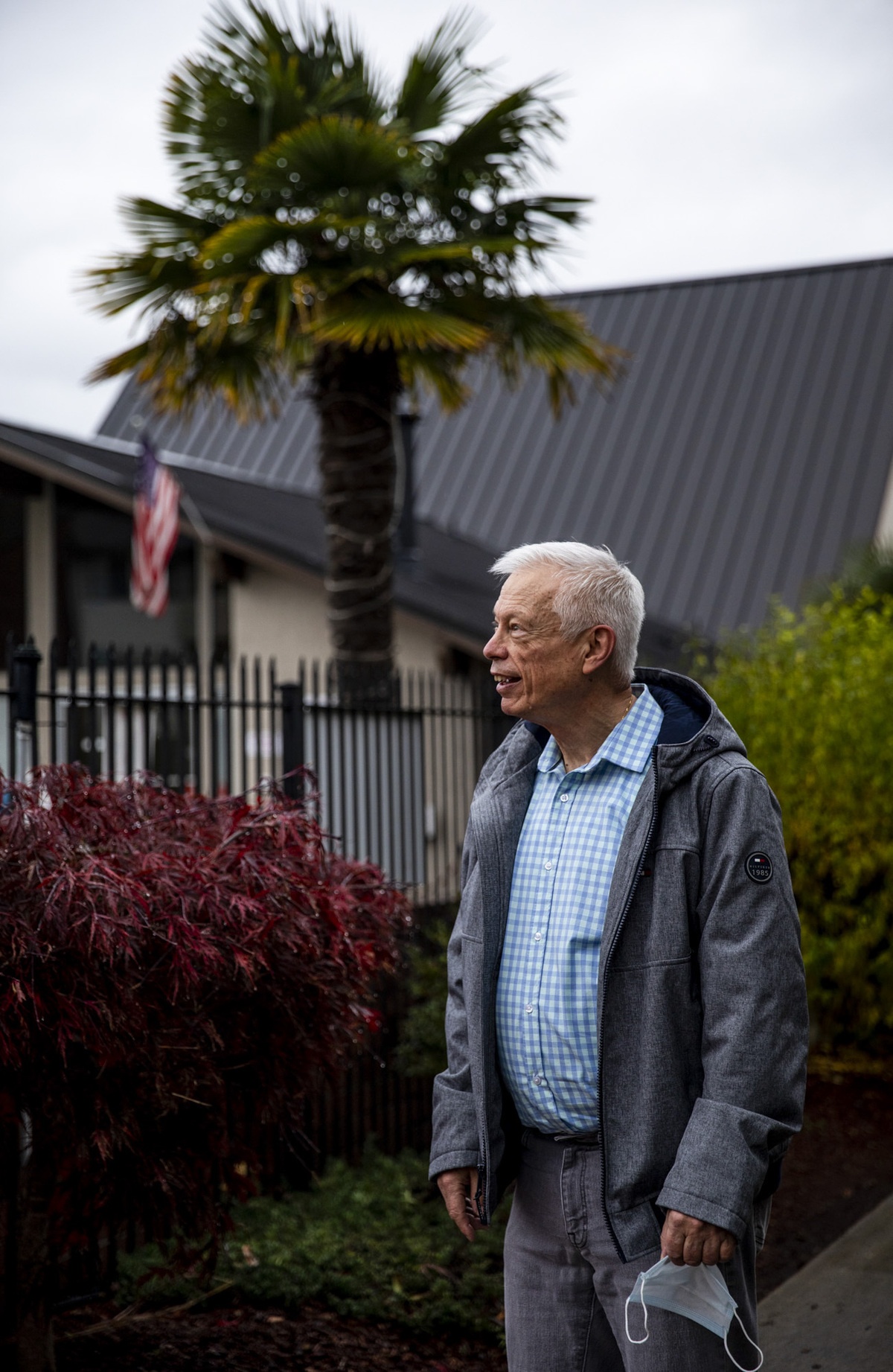
Back home in Seattle, he sought therapy for his post-traumatic stress syndrome, but no treatment could salve his “moral pain” or deliver him from the “shame and guilt” of having let the government turn him into a killing machine. Hardin calls the first 40 years of his journey home his own “Dante’s Inferno.” When he found the Clemente Course in the Humanities, he says he finally found “a path toward understanding my trauma and moral injury and reclaiming my self-worth.” He saw his own struggle reflected in those of legendary warriors like Odysseus, but he also found a community who understood his trauma. Discussing ancient poetry and philosophy with fellow veterans, Hardin realized, “I am not alone in this battle.”
George Williams, an army veteran who served the first of three tours in Iraq in 2004, says that when he sits in a classroom with his fellow Clemente students, “It’s almost like you can see them in uniform.” A man of deep feelings who suffered a head injury when his vehicle hit an improvised explosive device in Iraq, he grapples with survivor’s guilt and the deaths of his comrades in arms. In retrospect, he says, he returned to Iraq a second and third time because he felt closer to the people he lost. His voice cracks when he says that back in Iraq he felt like he “was standing with them again.”
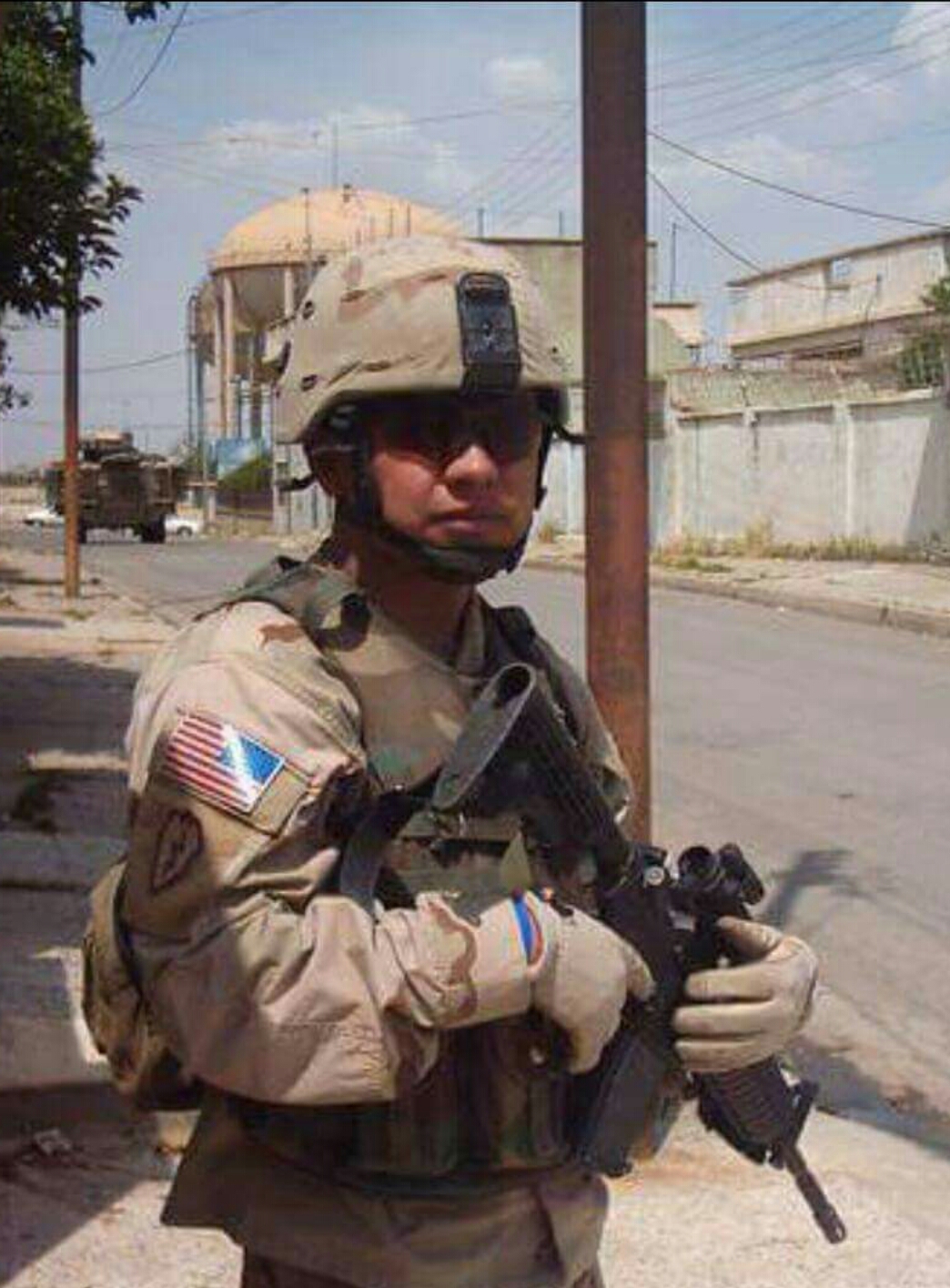
In a video produced by Humanities Washington, Williams describes his difficult passage into civilian life. “Parts of me still crave war,” he says. He still misses “the smell of spent ammo” and “the feeling of an explosion.” These sensations became his “everyday normal,” and when he came home, he longed for one more “dose of war.” This addiction fractured his personality. He developed an alternate persona named Will. Will was a survivor, but he was also unpredictable and hungry for war.
One night, drinking and high on heroin, Will had the idea to take his own life. He decided he’d jump off an overpass onto State Route 410. But first he had to get there, so he called a cab. When the taxi arrived and he hopped in, there happened to be another passenger who was bound for Joint Base Lewis-McChord. Will went along for the ride. If he was in a fugue state before entering the base, once inside, Williams woke up. He felt a desire to live. He went to the 24-hour duty desk, where he told the clerk he needed help. In retrospect, he calls this experience “a spiritual intervention.”
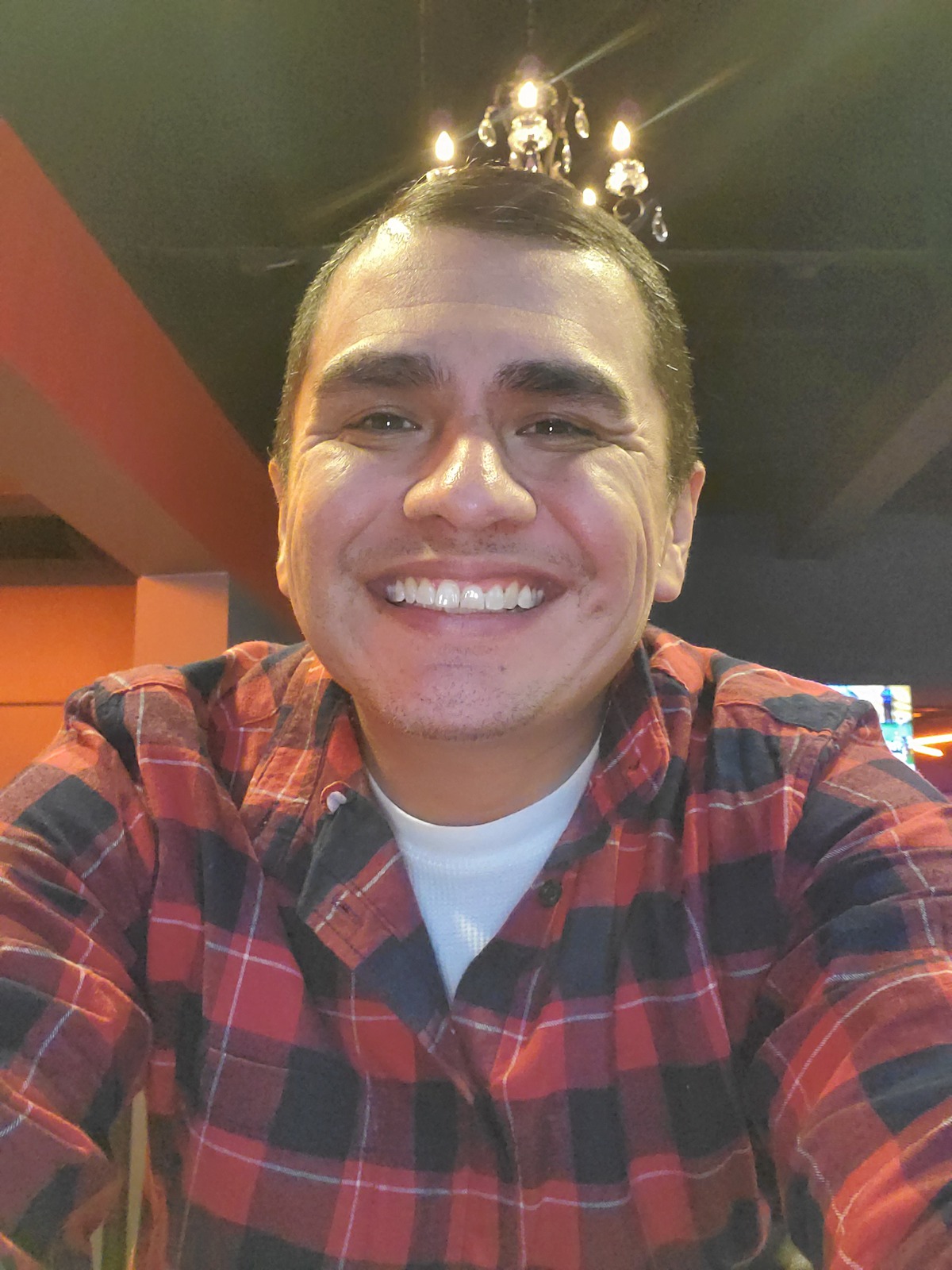
After that, he began reconstructing himself. He got clean and embraced his Indigenous heritage. A member of the Colville Tribes with Coastal Salish relatives, Williams says that, growing up, he learned not to believe in his own culture because it was “too superstitious.” As an adult, he became a “self-hating Native American.” Learning to love his culture and himself put him on a spiritual path that has kept him sober for the past seven years. Now, Williams tries to “pay it forward,” helping other veterans who struggle to hold themselves together. He says the company of fellow veterans in Clemente can be lifesaving for those in crisis. He likens class to a defibrillator and other students to “the paddles that shock you back to life.”
Since the coronavirus drove many classrooms online, we’ve opened our virtual community to veterans from all over America. Salvador Hernandez begins many class sessions with an affable, “Aloha from Hawaii.” Hernandez took part in the 2003 invasion of Iraq with the United States Marine Corps. “From a young age,” he says, “I had the spirit to serve and I knew that I wanted to serve in the military. After high school I didn’t have plans to attend college and I didn’t have direction. After working menial jobs for half a year, I decided that that was the perfect time for me to join. It was a no-brainer for me. I wanted to be part of the ‘best,’ and the best in my mind were the Marines.”
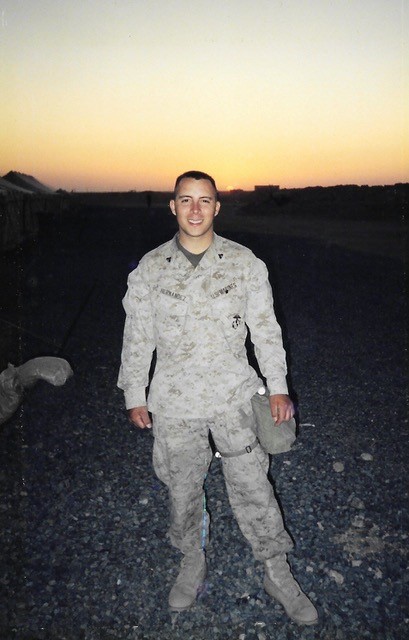
In Iraq, he grew accustomed to an intense life that he had trouble replicating back home. "Many things pale in comparison,” he says. To fulfill his need for service, he became a firefighter. “We jump off helicopters into the ocean to conduct water rescues, hike and rescue people in the mountains, fight structure and forest fires, drive various fire apparatus and watercraft, and get to play and use tools and devices unique to our trade. However fun and exhilarating these experiences are, I have found little to no enjoyment in them.”
Hernandez came home 17 years ago, but he feels part of himself still stuck in Iraq. “I feel like I am still going through the reintegration process,” he says. “I have not allowed myself the time to look back and reflect and make sense of my time in Iraq, possibly out of fear of evoking memories.”
His career and raising four kids with his wife keep him occupied, but Hernandez still craves the company of others who can understand his experience of warfare. He explains that the Clemente course introduced him "to other veterans from various generations that share the common commitment to personal growth.” He loves “reading the imparted wisdom of great thinkers, artists and philosophers.” He found intellectual conversations exciting. And, getting in touch with the life of the mind, he began to find healing from his combat experience. “Participating in the Clemente Course’s weekly discussions has given me a space where I am comfortable divulging my perspectives based on my war experience, without feeling judged.”
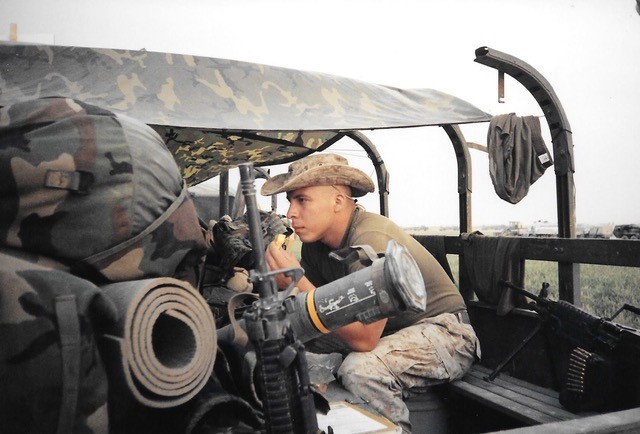
At their best, the humanities create a community where members can share their experiences honestly without the fear of being judged. The second syllable of the word “community” descends from the Latin munitio, meaning fortification. It’s related to ammunition. Ultimately, I think the humanities build a community that fortifies against the dangers of isolation. The humanities reinforce our communal nature through communication. In this way, it feels religious, like communion.
Communion illustrates our hunger for fellowship. Looking back now, I see the visceral brilliance of Homer’s Odysseus. The hunger he triggered in me makes his longing for home feel as primal as the desire for meat. Like many veterans returning from war, he descends into hell. Among the ghosts, he encounters soldiers he’s killed. He’s terrified until he finds a friendly face in Elpenor. Elpenor survives the war but dies on the way back to Ithaca. For him, it’s too late. But in his companionship, Odysseus finds the strength to continue his journey home.
